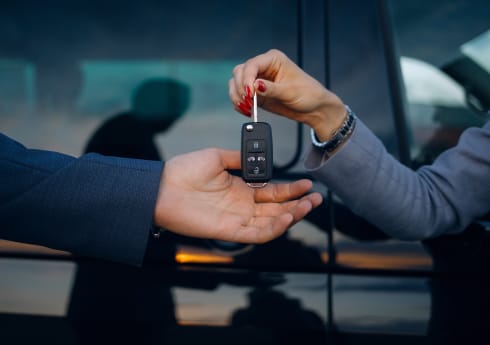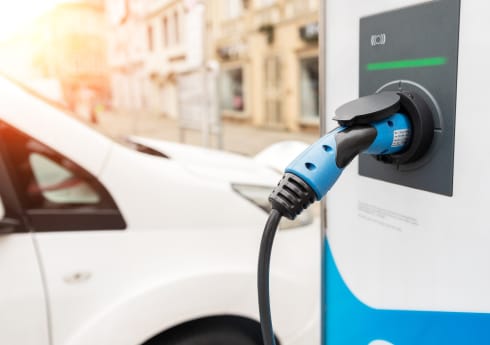Can You Drive a Van on a Car Driving Licence?
There is one van-related question that we’ve heard a lot: What licence do I need to drive a van? The answer is not always simple, as it depends on different factors. Our guide aims to clear the air around the questions of who can drive a van and on what type of licence.
On another hand, many seek to hire a van and often face restrictions they had no idea about. If you’re looking for a van hire for your business or just need to hire a van to move some stuff, here’s everything you need to know. Keep reading to be better prepared the next time you’re looking for a van rental.

What type of licence do you need to drive a van?
While you can drive most vans on a car licence, there are exceptions. Factors such as your age, the weight of the vehicle and the date when you passed your driving test can decide whether you’re legally allowed to drive a van or not.
The good news is that you should be able to drive most vans with your standard driving licence. Any van that weighs no more than 3.5 tonnes falls under the category of vehicles that can be driven on a car licence.
What is a 3.5 tonne van?
The 3.5 tonnes represent the gross vehicle weight (GVW). It means that a van can weigh up to 3.5 tonnes when fully laden. If you’re unsure how much a van weighs, look on the vehicle identification number (VIN) plate.
The GVW includes the weight of the van plus the payload, as well as the weight of the driver and any passengers.
Can you drive a van on a car driving licence and which vans?
A full UK driving licence – category B – allows you to legally drive any conventional vans, Luton vans or pick-ups weighing under 3.5 tonnes and having a maximum of 8 passenger seats.
Examples include models such as:
- Mercedes Vito
- Ford Transit
- Volkswagen Transporter
- Peugeot Boxer
- Fiat Ducato
- Renault Master
How about electric vans?
Electric vans are generally heavier than their diesel counterparts because of their large batteries. This means that an electric van can easily exceed 3.5 tonnes, even if it has the same dimensions as a conventional van.
For this reason, the Government changed the licence requirements for alternatively fuelled vehicles in 2017 by increasing the weight limit for electric vans. If you’re a category B licence holder, you can drive an electric van that weighs up to 4,250kg.
When you passed your driving test matters
It may sound strange, but the year when you acquired your driving licence can make a difference on what type of vehicles you can drive.
Those who got their driving licence before January 1997 may automatically be allowed to drive larger, heavier vehicles that weigh up to 7.5 tonnes.
If you passed your driving test after that date, you need to pass an additional test for a new category on your driving licence to drive vehicles heavier than 3.5 tonnes.
Also, keep in mind that you can drive a van starting from the age of 17, as long as you hold a full driving licence.
How about vans heavier than 3.5 tonnes?
If you’re looking to drive a large sized van with a gross vehicle weight of over 3.5 tonnes, you’ll need to pass a test and get a new category code on your driving licence – the C1 category. This category allows you to drive vehicles between 3.5 tonnes and 7.5 tonnes with a trailer of up to 750 kg.
To get a C1 licence you have to be at least 18 years old and hold a B licence. You also need to undergo a medical assessment to clear you of any medical conditions or vision problems that could impact your driving.
Firstly, you’ll need to apply for a provisional C1 licence. Then, you’ll need to pass three theory tests and one practical test to get your full C1 category.
Category C explained:
- C1 Category – You can legally drive vehicles between 3.5-7.5 tonnes MAM with a trailer of up to 750 kg
- C1E Category – Allows you to drive C1 vehicles with a trailer over 750 kg, but a combined MAM of up to 12 tonnes
- C Category – You can drive vehicles over 3.5 tonnes with a trailer of up to 750 kg
- CE Category – You are allowed to drive vehicles that fall under the C Category with a trailer over 750 kg
Conditions for hiring a van
For many businesses, hiring a van makes more sense than leasing one. Hiring is a more flexible option, it allows you to change the hire length, adapting the van hire to your business needs. Moreover, the hire company will usually cover all upkeep and maintenance costs.
The rule of thumb for hiring a van is simple: if you can legally drive a van, then you can legally hire one. This means you have to be at least 17 to hire a van. However, not many providers are open to lend a van to someone that young.
Some hire companies may refuse to hire a van to anyone under 21 years old, and may charge extra for those under 25. Other companies may look at how long you’ve had your driving licence for if you’re very young. Having a specific larger vehicle licence, like C1 category, could count in your favour.
Of course, all this is company dependant.
Pay attention if your driving licence is suited to drive a van. Remember, if you hold a full category B driving licence you can drive a fuel powered van that weighs under 3.5 tonnes or an electric van that weighs up to 4.25 tonnes.
iCompario tip:
Van hire usually comes with different options to suit your business needs. With flexible van hire, you can rent a van for anything from a day up to five years.
However, if you need a van hire for a longer period, long term van hire might make more sense, as it may be cheaper in the long run.
iCompario is the best free tool to help you find the right van hire solution to suit your business needs and conditions.



